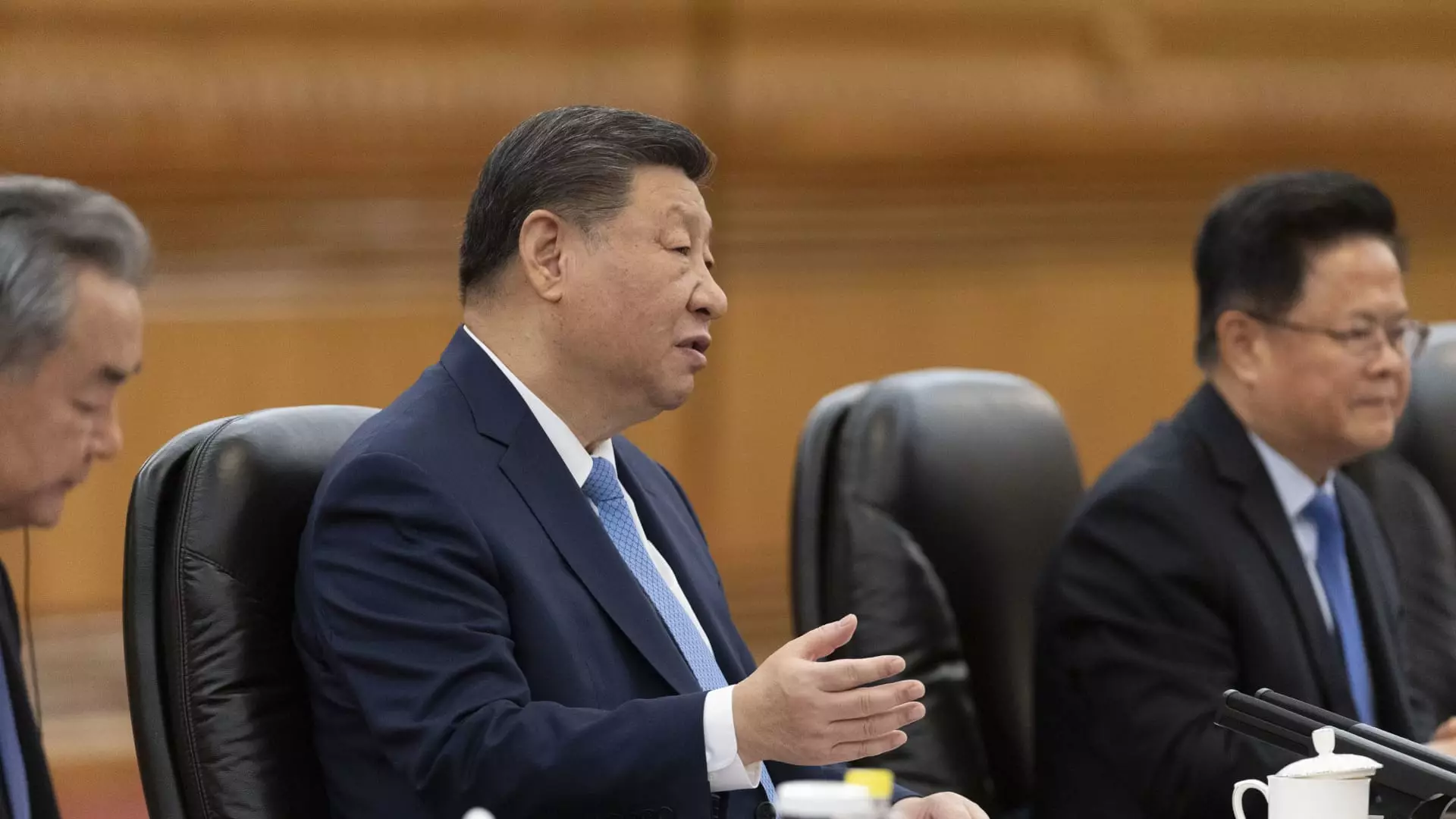In a pivotal symposium held recently, Chinese President Xi Jinping engaged with leading entrepreneurs, a move that suggests a possible thawing in Beijing’s previously stringent stance towards the private sector. Reports from state media Xinhua herald this gathering as a significant gesture of support for private enterprises, which have increasingly felt the pressure of regulatory scrutiny. Economic observers, such as Peiqian Liu from Fidelity International, interpret this event as a signal likely to re-energize confidence within the entrepreneurial realm, potentially leading to enhanced growth dynamics across China.
There has been growing concern surrounding China’s sluggish domestic consumption and the ongoing plight of its real estate market, all exacerbated by rising external trade barriers. This recent move by Xi may indicate a profound shift in Beijing’s economic strategy, designed to bolster the private sector as a vital component of its economic recovery plan. Liu posits that targeted support, particularly for the technology sector, could rival even the impact of fiscal stimulus measures, reaffirming the belief that innovation and entrepreneurship can lead to a revitalized growth trajectory.
Simultaneously, the convergence of this symposium with China’s urgent economic challenges signals that the government acknowledges the necessity of reviving the entrepreneurial spirit as a means to combat stagnation. The potential intentions behind this meeting reflect an understanding in Beijing that the path forward may require a balancing act between regulatory oversight and encouraging innovation-driven growth.
A Symbolic Turning Point for Technology
The meeting may serve as a watershed moment for China’s technology sector, which has experienced a tumultuous relationship with regulators since late 2020. For months, significant players within the tech industry faced intense scrutiny, driven by concerns surrounding monopolistic practices and data privacy breaches. As pointed out by Lynn Song, chief economist at LNG, this gathering could be the turning point that entrepreneurs within this space have eagerly anticipated, allowing them to operate with renewed optimism in a more accommodating regulatory environment.
These developments signal a potential end to the regulatory burdens that have weighed heavily on companies, allowing room for innovation to flourish. It marks an urgency from Beijing to restore confidence amidst perilous economic conditions and is indicative of a recognition that the vibrant private sector is crucial for China’s long-term economic health.
Per the latest reports, Jack Ma, the founder of Alibaba, was among the notable figures possibly present at this symposium, deemed a symbol of the fluctuating dynamics between the state and major tech entities. His participation could substantiate the speculation that the Chinese government is recalibrating its approach toward technology giants. Ma’s re-emergence might not only symbolize a shift in policy but also serve as an impetus for other enterprises to engage positively with the state.
Analysts are watching closely, as this gesture could mark a fresh chapter in Beijing’s relationship with its tech sector, characterized by a spirit of cooperation rather than adversarial oversight. While the mainland’s CSI 300 index remained stable following these announcements, the longer-term market sentiment may hinge on how these discussions translate into concrete policy changes.
As China navigates its economic challenges, Xi Jinping’s engagement with private entrepreneurs reflects a significant reevaluation of strategy toward enhancing domestic growth. By fostering a more congenial environment for the private sector, particularly in technology, the government could stimulate not just optimism, but also tangible results in economic momentum. The forthcoming months will be critical in determining whether this shift will yield sustainable growth or merely serve as a transient phase in China’s economic narrative.


Leave a Reply